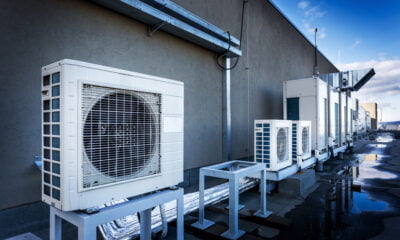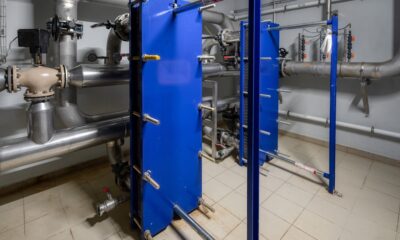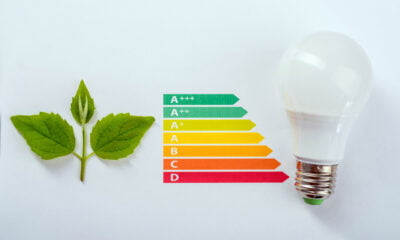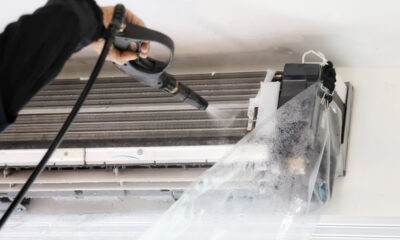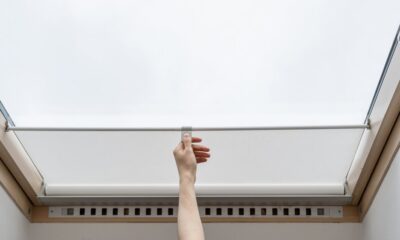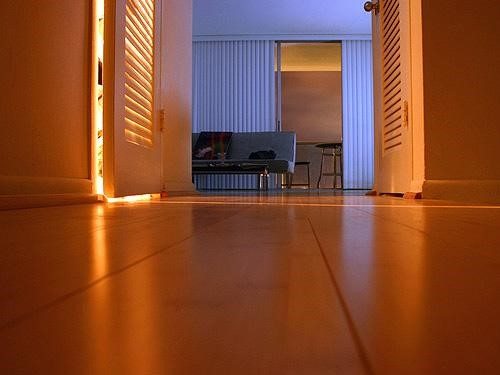

Energy
6 Energy-Efficient Improvements You Can Make to Your Home
In recent years, energy efficiency has become a hot topic, and for good reason. Increasing energy efficiency helps to save the environment, but it can also put more money in your bank account. If you have been considering improving parts of your home, why not make it more efficient by incorporating some of these ideas?
Improve the Insulation
Insulating your home is important for keeping cold air out during the winter and hot air out during the summer. In addition, it helps to keep rain, snow, and small pests from entering your home. However, many homes in the United States do not have enough insulation, especially in the attic. Insulation is available in a wide variety of materials, each with its own advantages and disadvantages. A professional can help you determine which is best for your home and your budget.
Install a Programmable Thermostat
Older thermostats can only be set at one temperature, regardless of the time of day or who is actually in the home. When you install a programmable thermostat, you can set it so that the system is off when nobody is home, which experts say save an average of 10 percent per year on utility bills. Avoid being too cold or too warm when you get home by programming it to begin working about 30 minutes before anyone arrives.
Purchase New Windows and Doors
Old windows and doors are the most common places where energy gets wasted. Aluminum frames allow your controlled air to escape through the joints and let the outside air in at the same time. By installing new doors with UV protection and wooden frames, you can improve your home’s airflow.
Replace Your HVAC Unit
If your HVAC unit has been around for more than 10 years, it has to work harder than newer models to keep your home at the right temperature, harming the environment and boosting your energy bills in the process. Improve the environment and your finances by installing a newer, energy-efficient HVAC unit.
Install a Tankless Water Heater
Traditional water heaters hold a tank of water and work to keep it warm at all times. Tankless water heaters heat water by having cold water travel through a hot pipe when you turn on your hot water. You still have water when you need it, but aren’t spending energy and money to keep it hot when you aren’t using it. Tankless water heaters can save you as much as 20 percent and can last as much as 10 years longer than traditional water heaters.
Paint Your Home
Most people don’t think of painting when they think of ways to improve energy efficiency, but if you live in a home that gets a lot of direct sunlight, new paint can help. New technology allows experts such as Crash of Rhinos Painting to use UV-resistant paint. By doing so, your home can reflect some of the sun’s rays, which may mean running your air conditioner less frequently. In addition, the UV resistance means your exterior paint won’t fade as quickly.
The exact energy-efficient improvements that work for your home will depend on where you live, the type of home you own, and your personal budget. Some improvements qualify for an Energy Star tax credit, so don’t forget to tell your tax preparer about them.


 Features11 months ago
Features11 months agoEco-Friendly Cryptocurrencies: Sustainable Investment Choices

 Energy11 months ago
Energy11 months agoThe Growing Role of Solar Panels in Ireland’s Energy Future

 Energy10 months ago
Energy10 months agoGrowth of Solar Power in Dublin: A Sustainable Revolution

 Energy10 months ago
Energy10 months agoRenewable Energy Adoption Can Combat Climate Change


